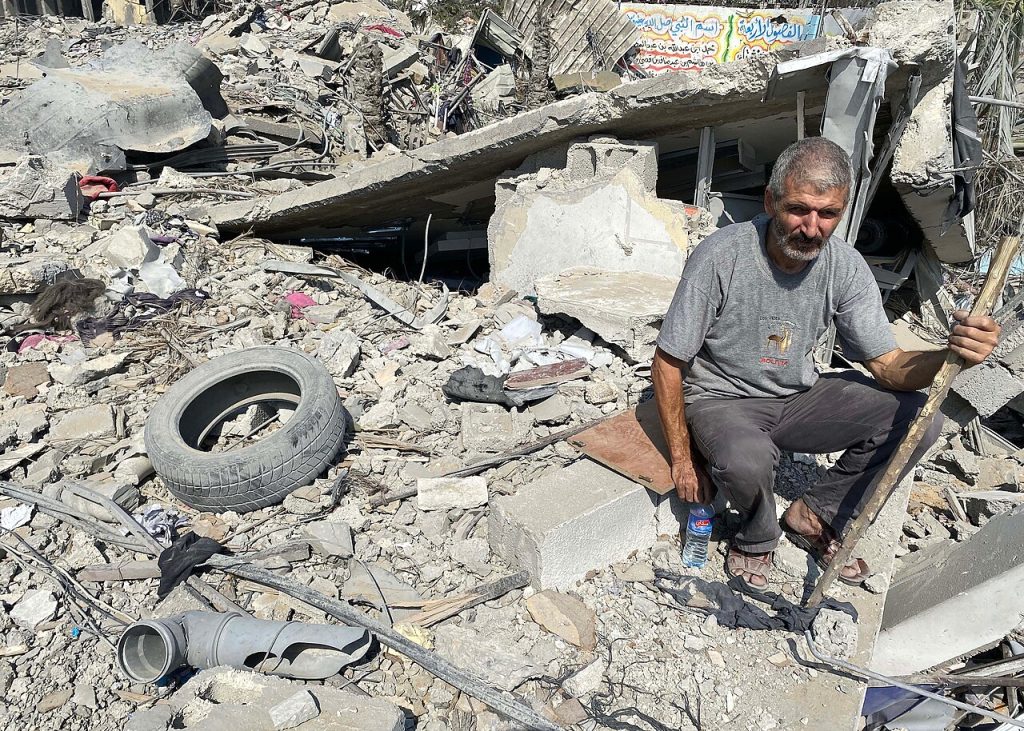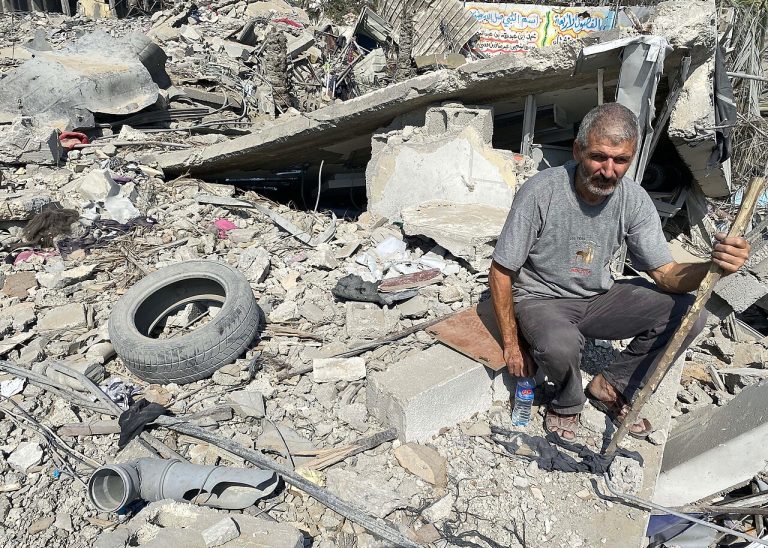The Bible has a lot to say about the fatal importance of changing military alliances in the small strip of land between the Mediterranean Sea and the Jordan River. Throughout Biblical history, all societies based on it were characterized by their need to ally themselves with one or another of the larger, more powerful, and often competing civilizations among which they were based.
The prophets, who saw how none of these alliances could prevent repeated invasion, came up with the pioneering idea of a society based on the justice of the weak against the power of the strong. Or, to use contemporary terminology, soft power versus hard power.
“Woe to those who go down to Egypt to ask for help! They rely on horses, and trust in the number of chariots and the multitude of chariot soldiers,” Isaiah warned the kings of Jerusalem. Rather, “Zion will be saved in justice, and in righteousness those who dwell in it.”
In a sense, Isaiah's prophecy was fulfilled. What remained as one biblical kingdom after another was destroyed was a people—Israel, if you will. In the “dispossession” or “diaspora”, the Israeli people could survive and develop a sometimes thriving Jewish culture without relying on chariots and fighters. Even at the time of the destruction of the Second Temple, there were more Jews living elsewhere than in the small strip of land between the sea and the river.

Palestinians inspect the damage following an Israeli airstrike on Al-Rimal Airport in Gaza City on October 9, 2023. Photo by Noman Omar Source: Wikimedia Commons
Throughout biblical history, hard power was never Israel's best weapon. It still does not exist in the history being written today.
For a long time, Israel's military superiority has not translated into strategic advantages. Since the ill-fated invasion of Lebanon in 1982 (which led to the massacre of the Palestinian refugee camps of Sabra and Shatila), Israel's wars have cost more than they have produced. The war in Lebanon in the summer of 2006 did not destroy Hezbollah as intended, but rather strengthened it. The war in Gaza, after six months, did not destroy Hamas as intended, but rather strengthened it. Since then, each new war to eliminate Hamas (2008, 2012, 2014) – “mowing the grass” as it has come to be called – has led to its strengthening.
The current war, which is supposed to wipe out Hamas “once and for all,” will not erase anything “once and for all.” Not to mention the fact that Israel is located where it is today, on a narrow strip of land between the sea and the river, and that it is still surrounded by larger and perhaps more powerful empires. Nor is the fact that Israel, although well armed and fortified, depends for its survival on alliances with larger powers – since 1967 with the United States.
Having become embroiled in another war with no clear end and no sustainable goal, a war that brings in its wake more death and destruction than ever before, it must now be clear to Israel that no number of vehicles will be able to secure its existence “once and for all.” “Forever.” everyone'. As another geopolitical earthquake occurs, Israel should see that it must make another attempt – albeit a belated one – to gain the kind of power that Isaiah defended: an attempt to bring peace and reconciliation between the two peoples on this narrow strip of land, on the basis of justice and righteousness.
The 1993 Oslo Accords between Israel and the Palestine Liberation Organization was one of these attempts. For a brief moment, it seemed that the high-profile handshake between Yitzhak Rabin and Yasser Arafat would be followed by thousands upon thousands of handshakes on the ground, leading to an agreed-upon division of the land into two states living peacefully side by side.
I tend to believe that it was the Palestinian intifada of 1987 and Saddam Hussein's missiles on Tel Aviv in 1991 that led Yitzhak Rabin, the former supreme commander and military hardliner, to realize the strategic limitations of Israeli military superiority. Rabin came to see that peace and reconciliation with the Palestinians was a strategic necessity. But he was assassinated by his own people, and strategic necessity gave way to another period of strategic arrogance and an increasingly aggressive occupation and settlement policy. One people continued to rule the other militarily, and by creating “facts on the ground,” one nation continued to colonize the territorial foundations of what would otherwise be the other.
In the decades that followed, Israel told itself that the strategic problem had been solved, and that the state based on this small strip of land could continue to live forever as an occupying power and a de facto apartheid state. Israel believed that the Palestinians were too weak and divided to defend their cause, while its military superiority was sufficient to suppress any revolution and deter any regional enemy. In recent years, Israel has begun to believe that by establishing alliances with autocratic rulers in the Arab world, it may consign the Palestinian issue to the dustbin of history.
Israel has long lived in a state of strategic self-denial. This became abundantly clear on the morning of October 7, 2023, when Hamas, with its breach of the “secure” border between Gaza and Israel and its pogrom-like massacre of some 1,200 Israeli men, women and children, made a full stab at the heart of the State of Israel – and world Jewry. This was not one of the bloodiest massacres in living Jewish memory (except for the Holocaust), but rather it was a massacre against the Jews committed in the same country that had historically justified its existence, and its policies, by being a refuge for the Jews.
If Hamas's intention was to awaken historical demons in the Jewish world and provoke Israel into a military response of such proportions as could cause a geopolitical earthquake, then this is precisely what its attacks on October 7 achieved. If Hamas hoped to unleash a devastating regional conflagration that would forever end the possibility of peace and reconciliation between the peoples between the sea and the river, then this is precisely what it did.
Israel's goal of eliminating Hamas “once and for all” through a devastating military campaign is, of course, just as illusory as Hamas's goal of launching the “liberation” of Palestine “from the river to the sea” through a terrifying terrorist attack. However, delusions can have real and terrible consequences. Regardless of how the war ends (this time), Israel's existential and strategic weaknesses have been exposed as never before. For its part, Hamas was able to incite another catastrophe, or another catastrophe, on its people, with the aim of blowing up the last remaining path to peace and reconciliation.
In this sense, Hamas has already won. With its disproportionate and humanitarianly disastrous response, Israel has continued to operate according to a morally and geopolitically unsustainable strategy that Palestinians must be oppressed forever – and expelled from their land if necessary.
Not only the moral but also the geopolitical unsustainability of a strategy based on military superiority alone has been clear for a long time now. What Isaiah once warned about, and what Yitzhak Rabin tried to draw political conclusions from, should have been clear, if not sooner, since the United States, Israel's military protector, (in Afghanistan and Iraq) demonstrated its inability to project force in the region. . area by military means. There is very little evidence today that this has changed. Instead, there are many indicators that the United States is heading toward a period of internal uncertainty and inability to rely externally.
Regardless of how much Hamas was wiped out this time, how much of the Gaza Strip was razed to the ground, and how many thousands of Palestinians were killed or expelled from their homes, Hamas's horrific attack represents the end of the Israeli security doctrine that has been built. On political and military arrogance and strategic self-deception.
Brera“No choice” is a Hebrew expression linked to the founding myth that Israel never had an alternative, and that the forces of history and geopolitical circumstances confronted the young state with only one path to take.
This is not true of course. In Israel's history, there have been many choices that were not made, and many paths that were not followed. We don't know where they might lead. But we know that the methods that were followed led Israel to a dead end. Its geopolitical vulnerabilities have steadily increased, its ability to provide security through military superiority has steadily diminished, and the fragile conditions for peace and reconciliation between the peoples living on the land between sea and river have steadily eroded.
Isaiah's most beautiful prophecy now seems more utopian than ever:
For from Zion he will proclaim the law,
From Jerusalem the word of the Lord.
He will judge between the nations,
Establishing justice among all peoples.
They make their swords into plowshares,
Their spears are knives of generosity.
Nation will not lift up sword against nation.
They will never learn war again.

